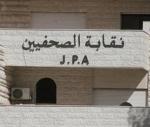You are here
Jordan's journey towards recycling success
Apr 01,2023 - Last updated at Apr 01,2023
Recycling has become a critical aspect of waste management and environmental conservation in Jordan, a country with over 11 million people.
The increase in population and urbanisation has led to higher waste generation, putting pressure on the existing waste management infrastructure and as recycling has become an increasingly vital global issue, Jordan also strives to tackle the growing waste problem and reduce their environmental impact.
The Kingdom faces its own unique set of waste management challenges. Jordan's waste management system is struggling to keep up with the 3 million tonnes of municipal solid waste generated annually, with only 7-15 per cent of it being recycled, according to several figures cited by the Ministry of Environment and the Greater Amman Municipality (GAM).
With limited resources and increasing waste generation, recycling must become a national priority as the sector is already employing thousands of Jordanians and holds potential for increased jobs creation.
Jordan has made progress in implementing recycling projects, with several initiatives launched by the public and private sectors, including some by GAM and the Ministry of Environment with the support of several donor agencies. Some private companies have developed recycling facilities and services, processing and selling recyclable materials such as paper, plastic and metals. Despite these initiatives, the recycling rate in Jordan remains relatively low compared with 30-50 per cent recycling rates in some European countries.
To address the situation, several challenges that hamper recycling efforts in Jordan should be overcome.
The country’s insufficient infrastructure remains an issue as recycling infrastructure is underdeveloped, with only a few waste sorting and recycling facilities operating, which makes it difficult to manage and process the growing volume of waste.
Lack of public awareness is another factor with many Jordanians being unaware of the importance of recycling and the role it plays in protecting the environment and conserving resources, which are all factors that have led to low participation rates in recycling initiatives.
The fact that there is a limited market for recyclable materials makes it challenging to sustain recycling businesses in Jordan, where there is a dire need for more efficient waste management regulations and incentives.
To better tap the potential in this sector, there is a need for increasing public awareness campaigns and educating the public about the benefits of recycling. Equally important are investing in developing more recycling facilities and improving the waste collection system and supporting the establishment of industries that utilise recycled materials, creating a demand for these products.
Building modern, efficient recycling facilities throughout Jordan will not only help manage the waste problem but also create job opportunities and stimulate economic growth.
Recycling is a critical component of sustainable waste management and has the potential to significantly reduce Jordan's environmental footprint. By addressing the major challenges and implementing solutions based on best practices, Jordan can create a more sustainable future for citizens and the environment. It is time for the country to embrace the opportunities offered by recycling and waste management and make it a national priority.
The writer is editor-in-chief of The Jordan Times and regularly writes for international media outlets.












